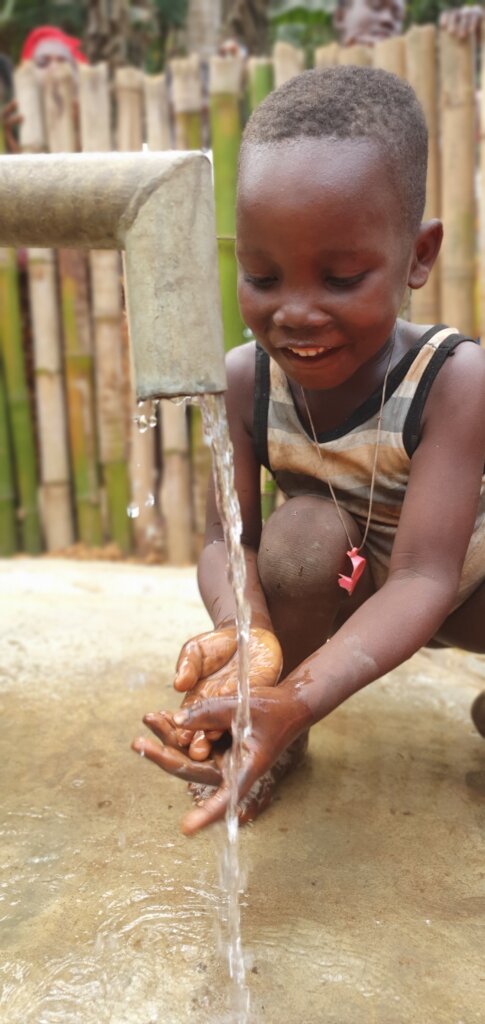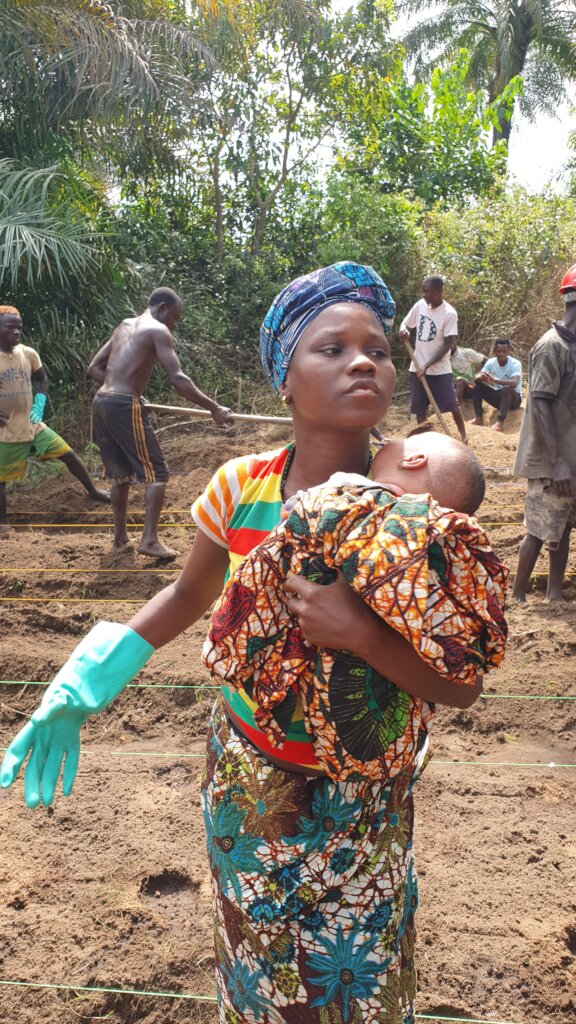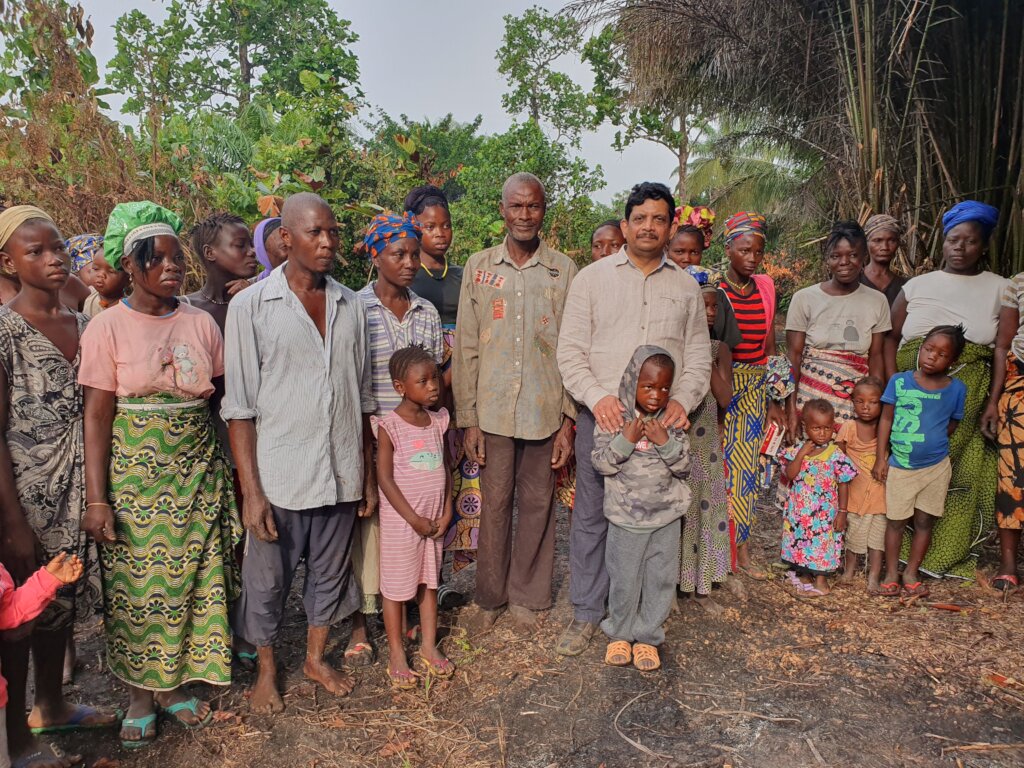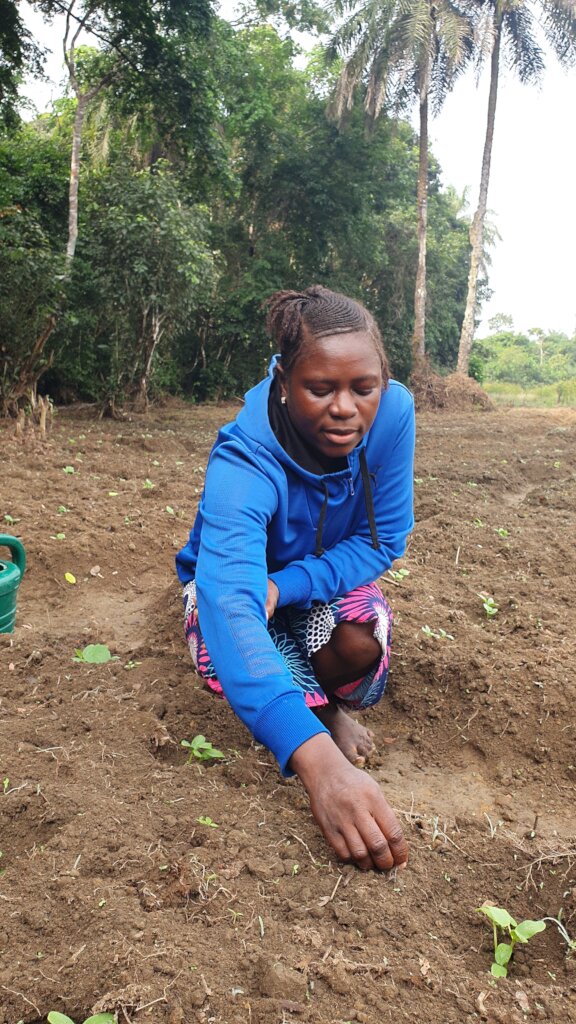By Antony Kingsley | Chief Executive Officer
Impact Assessment at Field Level: CEO Visit to Sierra Leone 2025
Introduction The CEO’s visit to Sierra Leone in 2025 provided valuable insights into the impact of WellFound’s initiatives on water access, hygiene, agriculture, and community development. The visit covered multiple villages, assessing project sustainability, community engagement, and identifying challenges that require further attention.
Day 1: Arrival and Visit to Salima Community The team departed from Moyamba at 5:00 PM, navigating difficult terrain that highlighted infrastructural challenges in remote areas. Upon arrival at Salima Community, they were warmly welcomed by enthusiastic villagers who showcased their well, emphasizing its transformational impact. Handwashing stations were observed at household levels, reflecting strong hygiene practices. The visit also included a tour of the community-led market garden, where women played a central role. The day concluded with challenges in reaching the staff house in Mopillah due to poor road conditions, requiring makeshift bridge construction before arrival at 9:00 PM.
Day 2: Visits to Multiple Villages The second day involved visits to various villages, including Mobona (Old), Mogbato (New), Borma (Old), Kpetewoma (New), Mobobor (Potential Site), and Mofuss (Potential Site). A key highlight was Motimphe, one of WellFound’s earliest project sites, where a well built in 2018 remained in excellent condition due to community-led governance and enforcement of by-laws.
The team also inspected wells at several schools, revealing that boreholes installed by other organizations were non-functional due to high iron content. This underscored the need for sustainable water solutions tailored to local conditions. In Borma, the market garden project demonstrated strong community ownership, with the site being relocated to a more suitable area, showcasing adaptability and gender inclusivity.
Day 3: Further Village Visits On January 11th, the team visited Dodo (New), Mokolloh (Old), Mobona (Old), Moyibo (Old), Kpetewoma US (New), and Gbualail (New). In Kpetewoma (US-funded), the WellFound drilling team was actively working, and early agricultural activities had already commenced, demonstrating immediate project benefits. A particularly inspiring moment was in Kpetewoma (Old), where the community restored a non-functional well built in 1993 using repurposed materials, ensuring schoolchildren had access to clean water.
Youth engagement was evident across multiple villages, with young people actively contributing to project sustainability. Community members also shared personal testimonies on how improved water access had positively impacted education and daily life. Expert feedback from Abubakkar, CEO of Green Compost, highlighted WellFound’s unique and impactful model for Sierra Leone.
Key Successes
Respect for the Well: Communities demonstrated strong awareness of well maintenance and sustainability.
Hygiene Practices: The presence of handwashing stations reflected behavioral change and improved hygiene standards.
Community Initiative: Villages exhibited a high level of ownership, ensuring project longevity.
Financial Empowerment: VSLA (Village Savings and Loan Associations) initiatives strengthened economic resilience.
Positive Community Engagement: Enthusiasm and dedication reinforced the effectiveness of WellFound’s interventions.
Clean Environment: Community cleaning rotas contributed to structured sanitation efforts.
Challenges Identified
Electricity and Internet Scarcity: Limited access hindered communication, training, and digital integration.
Sanitation Issues: Latrine construction remains inadequate, requiring further support.
Staff Capacity: Skills gaps among local staff necessitate additional training and input from the UK team.
Remote Accessibility: Poor road networks continue to challenge mobility and project implementation.
Conclusion and Recommendations The CEO’s visit reaffirmed the significant positive impact of WellFound’s interventions, particularly in water access, hygiene, and agriculture. However, addressing persistent challenges such as sanitation, infrastructure limitations, and borehole functionality remains crucial. Community ownership and enthusiasm provide a strong foundation for future efforts. Moving forward, strategic partnerships, capacity-building initiatives, and infrastructure improvements will be key to sustaining and expanding these vital projects.
Project reports on GlobalGiving are posted directly to globalgiving.org by Project Leaders as they are completed, generally every 3-4 months. To protect the integrity of these documents, GlobalGiving does not alter them; therefore you may find some language or formatting issues.
If you donate to this project or have donated to this project, you can receive an email when this project posts a report. You can also subscribe for reports without donating.
Support this important cause by creating a personalized fundraising page.
Start a Fundraiser


